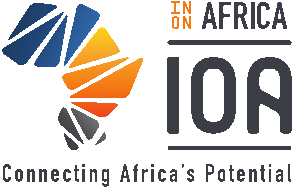Navigating through tertiary school and life after school
By Jason Muyumba, 23, Johannesburg

A few things in the more youthful years of adulthood are as daunting as the prospects of venturing off into post-secondary schooling. In addition to the barrage of considerations one must deliberate with on that front, the reality of the changing dynamics of your relationships’ weighs-in on you before you even have time to fully grasp your new reality. Some are more equipped and better adapted to handling the curveballs than others, however, this period is challenging for even the best of us.
Life after high school is both exciting and fear-inducing for multiple reasons. For many, our decisions in this period forges the paths that our lives will take over the course of the short and medium-term future. In my experience, the path seemed clear and almost formulaic: matriculate, go to university to complete my dream course, graduate, get a job and eventually retire with a bit of room for remote vacation, migration and an existential spiritual awakening. But my experience was everything but that, and that is where the crux of the dynamics around life after high school came into play.
The beauty, or the unsavouriness of high school is that everyone is lumped into a mainstream trajectory that makes navigating relationships along the lines of similarities and dissimilarities more manageable. However, outside such a setting, having to reconstruct and redefine those very relationships when your trajectory begins to diverge from those of your friends seems easier said than done.
Despite gaining access to my dream course at my dream institution, like many young people, I lacked funding to be able to pursue those very dreams that felt defining in those moments. It was against this backdrop that I set off to work in order to actualise those goals that weren’t readily handed to me. Two crucial lessons I learnt that aided me to navigate the relationships: timing and accountability. Timing taught me to value and to have patience for the different clocks in which our lives tick, that progress wasn’t always measured in relation to our peers or the companions of their progress or achievements, well, at least not always. The second lesson it taught me was that if I earnestly longed to see the fruition of my dreams and goals, that I am accountable for them. This accountability meant that I had to constantly work towards what I had set out to do, even when it felt like I had failed. Beyond the practical implication of these lessons on my life and actions, these also influenced my relationships. It became clear to me after high school and going into university – at the end of my gap year – that I had to give my relationships time and I had to be accountable to my friend/s as well as to myself about my commitment to a healthy relationship, if durability and longevity were on the agenda.
Attending university felt like an entirely new ball game, coming out of both a gap year and high school. Admittedly, my gap year had equipped me with the tool of certainty about my decision to pursue a tertiary education. It is indeed overwhelming to be thrust into an environment, far greater in size and depth than anything you’ve been previously accustomed to. The reality of becoming a number in a system is one that would send quivers down anyone’s back. However, this was my opportunity to be able to redefine myself as a young person with inconceivable opportunities.
Establishing a network of friends within my qualification was my first course of action. Unknowingly, this would prove to be my safety net amidst the inevitable uncertainty, confusion and alienation you tend to feel during your first few months. Secondly, I intentionally forged connections to things that fed who I felt I was and what I wanted to become. From joining Mandarin classes to increase my international exposure and cultural appreciation to volunteering in an organisation that represented a typically underrepresented demographic within the university environment. These both enabled me to meet like-minded young people with whom I could navigate the university experience. Academically, the best thing I could have done for myself was to pick a qualification for which I had a genuine interest. While this was a privilege, I know many are not privy to, what helped me out through some of the more difficult and monotonous courses was to try to relate to the course by developing a genuine interest in the content of the course more than the course itself. A true ode to Sir Francis Bacon’s “scientia potentia” also known as “knowledge is power”.
Indeed, life after school and tertiary education is challenging and perhaps one of the hardest hurdles you will ever have to surmount, however, there is indeed beauty in the struggle. Learning as you go is one of the strongest self-services you can render for yourself as you charter your life in this time.
Sharing is caring!
Help us spread the word about Voices Unite:


